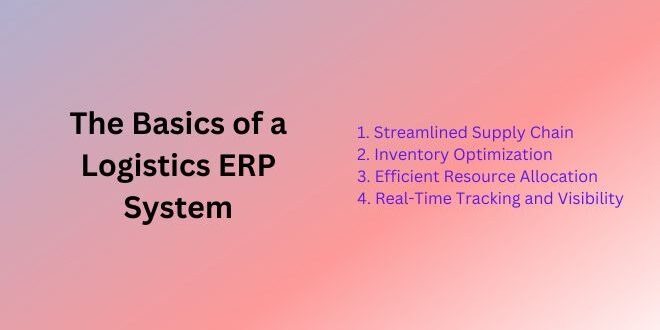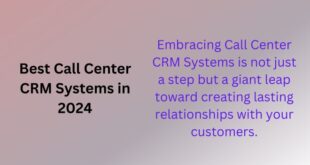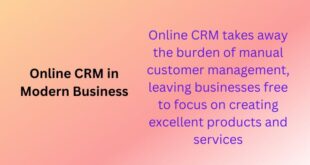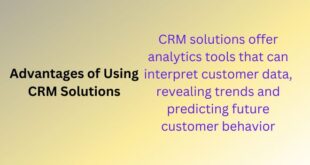In an era where efficiency and productivity are paramount to the success of any business, managing logistics has become increasingly complex. From inventory management to supply chain optimization, companies face numerous challenges that can hinder growth and profitability.
However, the implementation of a Logistics ERP (Enterprise Resource Planning) system can revolutionize the way businesses handle their logistical processes. In this article, we will explore what a Logistics ERP system is, and how it can benefit your business by increasing operational efficiency, improving customer satisfaction, and driving overall growth.
The Basics of a Logistics ERP System
A Logistics ERP system is a comprehensive software solution designed to manage and integrate the core functions of a logistics operation. It acts as a central repository for data, enabling various departments within an organization to access real-time information and streamline their processes. From purchase order management to inventory control, transportation management, and warehouse optimization, a Logistics ERP system covers a wide range of crucial logistics activities.
Related Article: The Advantages of Oracle NetSuite CRM
Enhanced Operational Efficiency and Cost Savings
By integrating and automating various logistics processes, a Logistics ERP system improves operational efficiency, leading to significant cost savings. Here are some key ways it achieves this:
1. Streamlined Supply Chain: A Logistics ERP system provides end-to-end visibility across the supply chain, allowing businesses to identify bottlenecks, optimize routes, and eliminate redundant steps. This streamlining reduces lead times, minimizes stockouts, and improves order fulfillment.
2. Inventory Optimization: Through accurate demand forecasting, automatic inventory replenishment, and real-time tracking, a Logistics ERP system helps optimize inventory levels, reducing carrying costs and preventing wastage. Additionally, it enables businesses to avoid overstocking or understocking situations, ensuring timely deliveries.
3. Efficient Resource Allocation: With a Logistics ERP system, businesses can effectively allocate resources such as vehicles, personnel, and warehouses based on real-time demand and capacity constraints. This ensures that resources are utilized optimally, reducing idle time and improving overall productivity.
Improved Customer Satisfaction and Experience
In today’s highly competitive market, customer satisfaction and retention are paramount. A Logistics ERP system can significantly enhance the customer experience by addressing their needs efficiently and effectively. Here’s how:
1. Real-Time Tracking and Visibility: With an integrated Logistics ERP system, businesses can provide customers with real-time updates on their orders, including shipment status, estimated delivery times, and any potential delays. This transparency builds trust and improves customer satisfaction.
2. Efficient Order Processing: A Logistics ERP system optimizes order processing by automating tasks such as order entry, invoicing, and payment processing. This eliminates errors, reduces processing time, and ensures accurate and timely deliveries, delighting customers.
3. Improved Communication: The centralized nature of a Logistics ERP system enables seamless communication between different departments and stakeholders involved in the logistics process. This eliminates information gaps, prevents miscommunication, and enhances collaboration, leading to improved customer service.
Driving Business Growth and Long-Term Success
Aside from cost savings and customer satisfaction, a Logistics ERP system also has a significant impact on overall business growth and success. Here are some key benefits:
Related Article: Ensure Accurate Health Insurance Quoting Software
1. Data-Driven Decision Making: A Logistics ERP system collates and analyzes data from various sources, providing valuable insights into key performance indicators (KPIs), such as order fulfillment rates, transportation costs, and warehouse utilization. These analytics enable businesses to make informed decisions, identify growth opportunities, and optimize their logistics strategies.
2. Scalability and Flexibility: As businesses expand and adapt to changing market dynamics, a Logistics ERP system offers scalability and flexibility. It can easily accommodate increased transaction volumes, new business units, or changes in processes, ensuring seamless operations even during periods of growth or transformation.
3. Compliance and Traceability: With increasingly stringent regulations and heightened customer concerns around sustainability and product authenticity, a Logistics ERP system helps businesses maintain compliance and establish traceability. It provides accurate documentation, tracks product origins, and ensures adherence to legal requirements, fostering trust and credibility.
In today’s fast-paced business landscape, a Logistics ERP system is no longer a luxury but a necessity for companies looking to gain a competitive edge. By streamlining operations, improving customer satisfaction, and driving overall growth, this comprehensive software solution becomes an invaluable asset. Embracing a Logistics ERP system empowers businesses to navigate the complexities of the logistics industry with ease, enabling them to focus on their core competencies while leaving the logistical challenges to technology. So, take the leap and embrace the power of a Logistics ERP system – and watch your business thrive.




